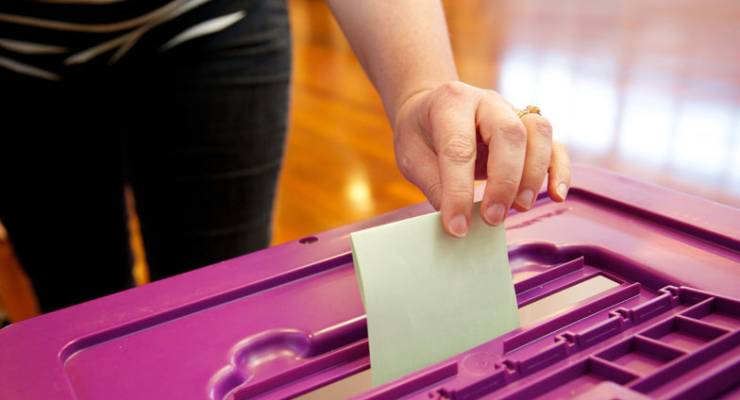
This election, the victory and concession speeches we still expect to hear on election night came eight days later.
In a bid to avoid the days of uncertainty — which we don’t doubt were unpleasant for Malcolm Turnbull and Bill Shorten — both leaders have urged the nation to look at electronic voting.
“We’re a grown-up democracy, it shouldn’t take eight days to find out who’s won,” said Shorten. Turnbull, ever the innovator, agreed, saying it was something that “we must look at”.
But we have looked at it, many times. And there’s reasons the AEC persists with the paper system.
There’s no doubt we’ll be voting electronically eventually. One can envision a day when most Australians no longer know how to hold a pencil. But that day is decades off. In the meantime, what we have is a range of electronic voting schemes, all shown to have flaws the old-fashioned but relatively accurate paper vote does not. When the NSW Electoral Commission rolled out electronic voting in the 2015 state election, cryptography academics Vanessa Teague and Alex Halderman discovered a vulnerability that meant votes could be altered and manipulated. They alerted the commission, which fixed the issue, but only after polls had been open for several days and 66,000 votes had been cast. And as an expert in election technology points out in Crikey today, even the semi-automated Senate count being done for the first time this election has its weaknesses.
The public blames the AEC for the wait. But imagine the outrage if, days, weeks or months after the result was announced, it was discovered that the system had been hacked, had counted wrong, or otherwise been compromised. We will stick with our pencils for now.







If we can bank, why can’t we vote
We can bank because the banks are willing to wear the cost of fraud (by baking it into the cost of running the system that they pass on to all of us). There’s no equivalent thing you can do to handle the risks with votes.
Exactly. Nor will the banks ever divulge just how vulnerable their online systems are.
Computers can’t be hacked, websites are not meta-stuff and Brandarse has our best interests in mind…err.. at heart (coff, coff… expires in search of an appropriate word.
On another point, “a day when most Australians no longer know how to hold a pencil. But that day is decades off.” – have you looked lately at how most of those under 30 hold writing sticks? As if they were daggers or chisels, moving the entire arm to form letters. No wonder they rarely do so.
A grown-up democracy would just wait till the postals are all in. It would go about its business, under its caretaker government, until the result is known. The sky does not fall in.
I counter with: we’re a grown-up democracy, we shouldn’t care if it takes eight days to reach a decision.
While the people who want “internet voting” or “app voting” are bonkers, a decent compromise would be to have some sort of electronic device in the polling booth that the voter uses to create their ballot. A paper copy is then printed out, which the voter – after verifying it matches their wishes, of course – deposits into the ballot boxes – these are the legal votes and the ones that have authority should any discrepancy arise.
Traditional ballot papers would also be available to those who want them.
The paper ballots are counted as normal. Their consistency and clarity of marking should mean an OCR system can be used for the tallying, with a puny human to step in where required, and also to check close/contentious seats.
However, the tally collected electronically during this process could be used to give a same-day result (or pretty close to it) for the ADHD sufferers. Manual counting effort could then be focused on marginal seats.
Of course, all the software and hardware involved should be open source and publicly available.
A key question arises, however: would the electronic voting system allow the generation of an invalid/informal vote ?
(Another advantage to this system would be the ability to/justification for randomise the candidate order on every ballot paper, thus evening out the donkey vote and ending the petty stupidity that goes on around HTV cards.)
+1 all of that Dr Smith (Zachariah??)
No reason not to have paper ballot, either electronically printed, or electronically read, or both. I dislike the idea of all computer processes, too easy to fudge.
+1 from me too. You want the people (15 million) to speak, you wait to hear the answer(s). If there is a conflict between credibility and speed, go for credibility every time. Grown-up = able to wait.
How about we get the current system right first?
There are many reports of people not being able to vote because their polling station ran out of ballot papers…but they were told their names would be crossed off so they wouldn’t be fined!!
There was, allegedly, one large group of ADF personnel on exercises up in the mid-north of SA, who weren’t given ANY chance to vote.
Some democracy!!!
With all the reported problems in the American system, why would we want electronic voting here? Too easy to tamper with, apparently.